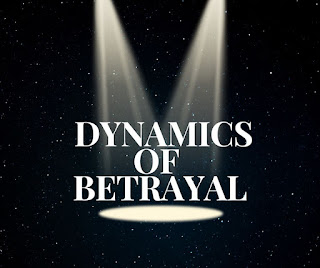Building your Emotional Bank Account
There are two deceptively simple things you can do to improve your marriage. Although it might sound like an unusual comparison, we can compare the dynamics of our marriage relationship to our personal finances. If you want to improve your finances, you need to pay down debits and to increase savings. Married relationships have similar principles. You need to pay attention to your Emotional Bank Account as a couple.
In marriage, our “debits” represent our resentment towards
our partner. When someone does something to us that is hurtful or unjust, we
can hold on to these events and begin to keep score. We might hear ourselves
say, “That is the third time you have done . . .” Being filled with resentment
causes us to build up an account of debits that we hold against our partner.
This can make us look down on our partner and even to treat them with contempt.
These relationship debits are real, and of course we deserve
to be treated with respect, but holding on to these debits actually hurts us
more than the other person. Someone once said that holding on to
unforgiveness is like drinking poison and hoping it will hurt the other person.
We need to have the courage be honest with our partner about
how they hurt us, but then to let it go of this hurt and forgive them. Having said
this, sometimes more serious hurts will take time for us to resolve our past feelings.
Forgiveness can sometimes be a process. In some cases, broken trust must also be
earned back. The first step to healing is forgiveness.
In a similar manner, our “savings” in our marriage
relationship represent the process of building emotional connection and acknowledging the good in your partner.
I would like t suggest one deceptively simple, but extremely powerful relationship exercise. A couple must take time each day to compliment
something they appreciate about their partner. If we take time each day to do this,
it builds up a reserve of good will in the relationship.
A couple should agree together in advance to do this
exercise. The only rule is that each person needs to be given time to think and
reflect, before they share their compliment with their partner. It does not
work well if one partner is ready with a compliment and then surprises the
other partner at a time when they are distracted, or before they had time to
think.
Minor conflicts seem inevitable in relationships. If we have
built up a bank of appreciation and compliments, then when we make a “big
withdrawal” in the midst of a relationship conflict, our memory of this
acknowledgment of the good things we have done, balances the negative
experience. If we have also learned to
let go of our resentment and to forgive our partner, we will not add the current
conflict to previous relationship debts.
When your emotional bank account as a couple is overdrawn, and in the red, you tend to feel lonely and disconnected. Gottman's research also revealed that successful couples maintained a 5:1 ratio of positive to negative interactions. Many small acts of connection often mean more than large ones.
Relationships function best when it is safe to make mistakes
and to deepen our understanding of our partner’s emotional life. When each
person feels valued and appreciated, open communication is much easier. To
begin with, we need to understand our own feelings and to have the courage to
share them with our partner. As St Paul reminds us, “Be kind to one another,
tenderhearted, forgiving one another, as God in Christ forgave you. (Ephesians
4:32).
Marriage researcher, John Gottman has shown that healthy relationship are built by many small deposits and withdrawals form our emotional bank account. Research has shown that, although they may not realize it, most couples are actually fighting about
We noted Gottman's findings based on a six-year follow-up study of newlywed couples. Those couples who remained married turned toward their partner’s bids for emotional connection 86% of the time in Gottman's relationship lab, while those who divorced only averaged averaged 33%.
The following short video from the Gottman Institute highlights these truths.
The following short video from the Gottman Institute highlights these truths.




Comments
Post a Comment
Thank you for your comment on the threefoldcord blog. All comments are moderated.